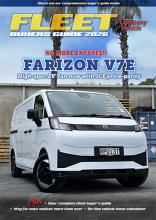The South-East Asian crash test programme, Asean Ncap, has conducted its first test in Malaysia, the first of seven scheduled as part of Phase 1. Each of the vehicles will undergo a frontal offset crash test at 64 km/h (consistent with the Australian Ancap test protocol) at a purpose-built crash test facility located in Malacca, Malaysia.
Following assessment of structural performance and injury data obtained from dummy occupants, each vehicle will be awarded a safety star rating by Asean Ncap.
"This first test is a step towards improving road safety in the Asean region," said Ancap CEO Nicholas Clarke.
"More than100,000 lives are lost each year as a result of road fatalities in Asean countries, and with the rapid increase in motorisation in this region, the situation will only worsen unless action is taken."
The establishment of Asean Ncap is one of the key objectives of Global Ncap - to expand New Car Assessment Programmes into emerging markets as part of the United Nations' Decade of Action for Road Safety (2011-2020).
"As part of the Decade, Ancap has assisted with the establishment of Asean Ncap, providing technical and programme support and advice to ensure the Asean programme pursues protocols and procedures that will provide meaningful, accurate, repeatable and reliable test results.
“The results yielded by Asean Ncap testing will raise consumer awareness in the region and ensure motor vehicle safety standards are elevated."
Phase 1 of the Asean Ncap test programme will cover the Ford Fiesta, Honda City, Hyundai i10, Nissan March, Perodua MyVi, Proton Saga and Toyota Vios.
"While road fatalities in developed countries are generally decreasing, they are on the rise across the
Asean region. We're already seeing this new Asean test programme put pressure on manufacturers to supply safer vehicles, and simple technologies such as anti-lock brakes (ABS) for motorcycles will also help combat the toll," said Clarke. Results from the Asean Ncap testing will be available in 2013.
Asean Ncap is administered by the Malaysian Institute of Road Safety Research (MIROS) with the support of Global Ncap, Ancap, and the Automobile Associations of Asean countries.



